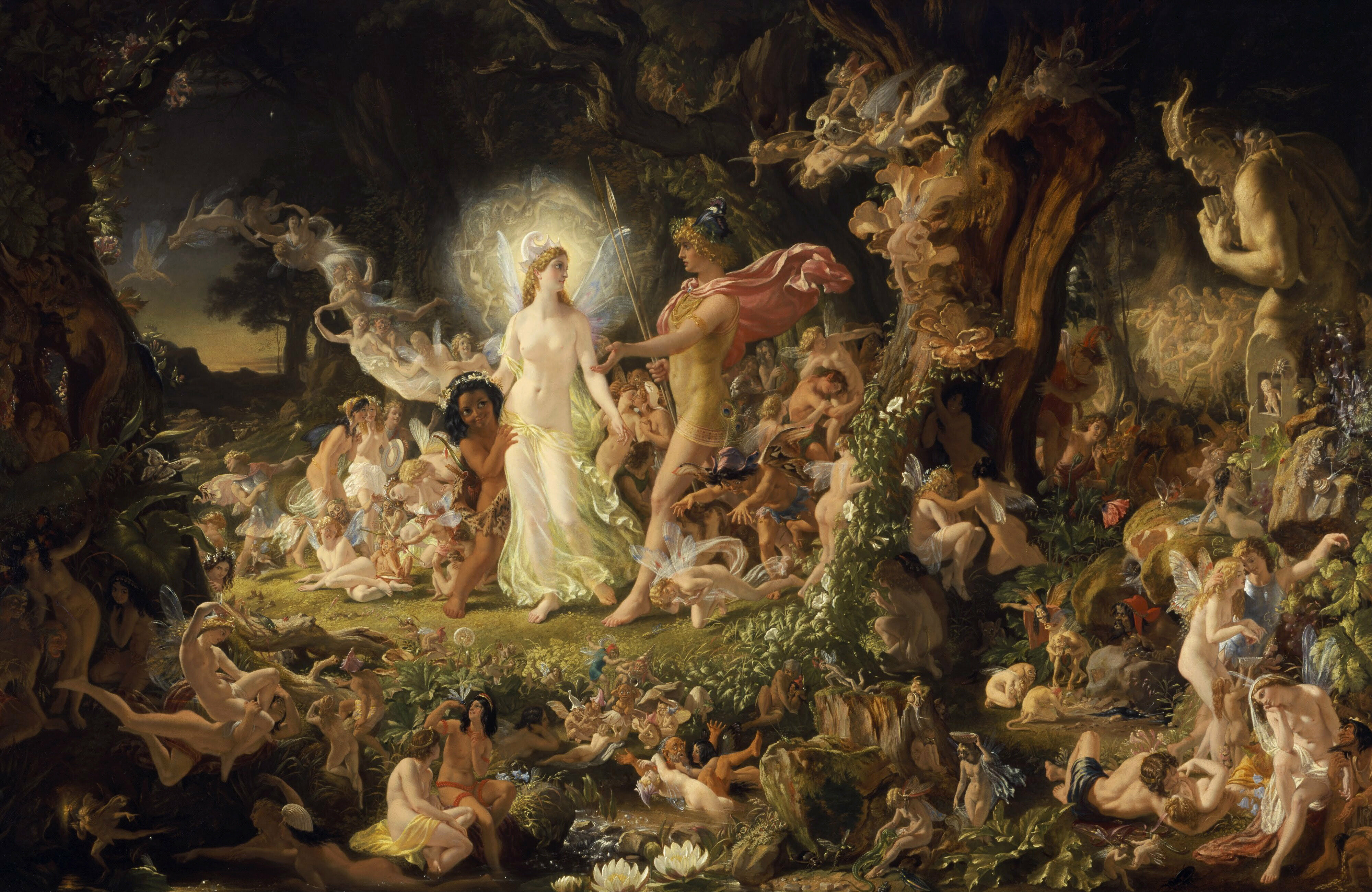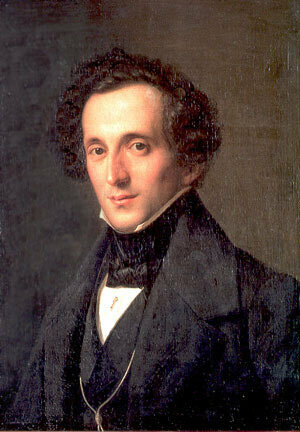
The Quarrel of Oberon and Titania by Joseph Noel Paton 1846
Mendelssohn: A Midsummer Night’s Dream: Scherzo, Op. 61, no. 1
This music was played between Act I and II. Act I sets up the situation with the human lovers (Theseus and Hippolyta and their friends) and the comic hijinks of the amateur actors (Bottom the Weaver and the ‘mechanicals’). Act II marks the entry of the Fairy Court and Mendelssohn carries them in with the lightest touch. The flutes and piccolos and other high woodwinds gradually gather the strings behind them as they portray the entry of the otherworldly.

Felix Mendelssohn
Credit: www.theportobelloorchestra.co.uk/
Purcell: The Fairy Queen, Act I: First Music: Prelude
In his 1960 work, A Midsummer Night’s Dream, Benjamin Britten turns the story around and opens with the entry of the fairies. Slithery strings, boy’s voices, and evocative woodwinds, particularly the clarinets, take us to another world from the moment the opera opens.
Britten: A Midsummer Night’s Dream: Act I: Introduction
Britten takes us to another world as well, with the use of the high boy’s voices, rarely heard in opera, and with Oberon, the King of Fairies, being played not by the normally heroic tenor, but by a countertenor. This male voice, sung nearly at the same pitch as a soprano, is a very different sound that normally heard on the 20th century opera stage. The voice of Oberon, more than that of any other singer, is another reminder that we are in another time and place.
